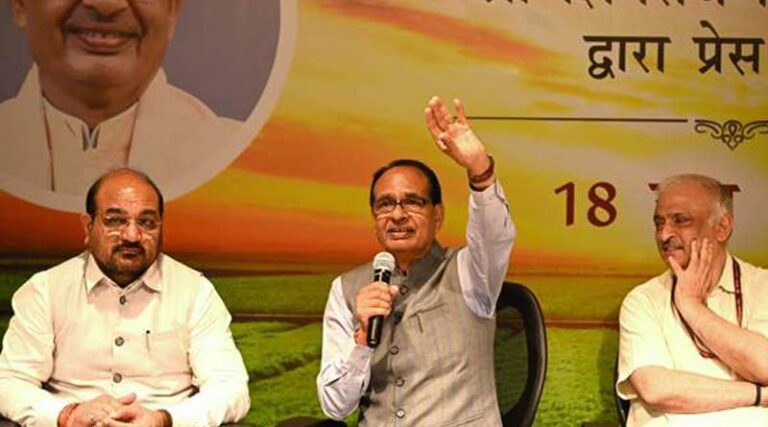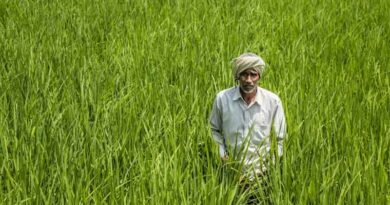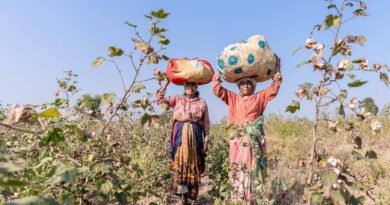
Over 1.34 Crore Farmers Reached Across 1.42 Lakh Villages under Viksit Krishi Sankalp Abhiyan
20 June 2025, New Delhi: The Union Minister for Agriculture and Farmers’ Welfare and Rural Development, Shivraj Singh Chouhan, has described the Viksit Krishi Sankalp Abhiyan as a powerful and transformative initiative that has successfully connected with farmers at the grassroots level across the country. Speaking to the media, he declared that the campaign is not a one-time exercise but the beginning of a continuous national movement aimed at modernizing Indian agriculture and improving farmer livelihoods through direct engagement.
As part of the campaign, 2,170 teams comprising scientists, agriculture officers, and experts visited more than 1.42 lakh villages and interacted directly with over 1.34 crore farmers. The outreach was unprecedented in scale and received support from Chief Ministers, Union and State Ministers, Members of Parliament, MLAs, and thousands of local representatives.
Field-Level Engagement to Become the New Norm
The Minister emphasized that real understanding of agriculture cannot come from sitting in air-conditioned offices. He announced that Krishi Vigyan Kendras (KVKs) will now serve as nodal agencies in each district and play a central role in responding to farmer needs. Scientists from KVKs will be required to spend at least three days a week in the field. Chouhan himself committed to visiting farms twice a week to stay closely connected with farmers and their challenges.
To streamline institutional coordination, a centralized mechanism will be established to align the functioning of key stakeholders. The Indian Council of Agricultural Research (ICAR) will appoint a State-wise Nodal Officer in each state to oversee scientific trials, provide expert inputs, and act as a bridge between state governments and scientific institutions. This will help develop region-specific agricultural strategies backed by science.
Addressing Core Challenges: Seeds, Pesticides, and Input Quality
The Minister pointed out that during the campaign, two major concerns were frequently raised by farmers — the availability of substandard seeds and poor-quality pesticides. In response, the Ministry plans to take strong measures, including strengthening the Seed Act and improving quality control systems, to ensure that farmers receive only certified, reliable inputs.
He stressed that bridging the gap between research institutions and farm fields remains critical. While the campaign witnessed innovative practices and farmer-led experimentation, there are still challenges that must be addressed. Increasing productivity, reducing the cost of cultivation, and ensuring that farming becomes a profitable and sustainable enterprise are key goals moving forward.
Campaign Expansion and Crop-Specific Missions Ahead
To continue the momentum, the Viksit Krishi Sankalp Abhiyan will be relaunched during the Rabi season. A detailed action plan for Soybean will be rolled out first, with a major stakeholder consultation scheduled for June 26 in Indore. Similar focused missions will follow for crops such as cotton, sugarcane, pulses, and oilseeds.
Before this, a national-level meeting will take place on June 24 at the Pusa Institute in New Delhi. The meeting, to be held in hybrid mode, will bring together agricultural scientists, officers, and ministers from across the country to evaluate the outcomes of the campaign. State-wise agricultural conditions will be reviewed through detailed presentations by nodal officers, and discussions will also cover research priorities and required structural reforms.
Inclusive Outreach to Tribal, Aspirational and Remote Areas
One of the key strengths of the campaign was its commitment to reaching underserved areas. In 177 tribal districts, over 8,000 programs were organized across 1,024 blocks, reaching nearly 18 lakh farmers. In the 112 aspirational districts identified by the government, teams visited around 6,800 villages and connected with approximately 15 lakh farmers. Nearly 100 border districts and remote vibrant villages were also covered, ensuring that agricultural outreach reached even the most inaccessible corners of the country.
Kisan Chaupals and Farmer-Led Policy Recommendations
Kisan Chaupals — interactive gatherings between farmers and scientists — became one of the most impactful tools of the campaign. These engagements allowed scientists to discuss issues such as seed varieties, pest management, and soil health directly with farmers. Two major insights emerged: research priorities must be informed by local realities, and farmers are often innovators in their own right, developing indigenous solutions that even seasoned researchers find impressive.
Several policy suggestions also emerged from these interactions. Farmers called for an integrated climate change strategy, easier processes for organic certification, a comprehensive fodder policy, and a more practical and effective approach to Farmer Producer Organizations (FPOs). The Minister assured that these grassroots-level recommendations will be taken seriously and reflected in future policy directions. “The field is the most authentic laboratory, and the farmer’s voice must guide our path,” he said.
Vision for Indian Agriculture: Unified and Forward-Looking
Highlighting the achievements of the past decade, the Minister noted that food grain production has increased by 40% over the last 11 years — a testament to strategic and consistent policy-making. He underlined the broader mission of ensuring food security, nutritional availability, and profitable farming while preserving soil health for future generations.
Chouhan concluded by outlining his vision of “One Nation – One Agriculture – One Team,” a unified and collaborative platform where farmers, scientists, institutions, and policymakers work together toward a prosperous and developed agricultural economy. The press conference was also attended by Devesh Chaturvedi, Secretary (MoA&FW), and Dr. M.L. Jat, Secretary (DARE) and Director General (ICAR), who reiterated the government’s commitment to continued engagement and innovation in the agriculture sector.
Also Read: India’s Agricultural Sector on Track to Triple: McKinsey Highlights $3.1 Trillion Potential by 2047
📢 If You’re in Agriculture, Make Sure the Right People Hear Your Story.
Have a story the global agriculture industry should hear? From product launches to strategic announcements, Global Agriculture offers unmatched visibility across international agri-business markets.
Connect with us at pr@global-agriculture.com or info@krishakjagat.org to explore editorial and advertising opportunities that reach the right audience, worldwide.






